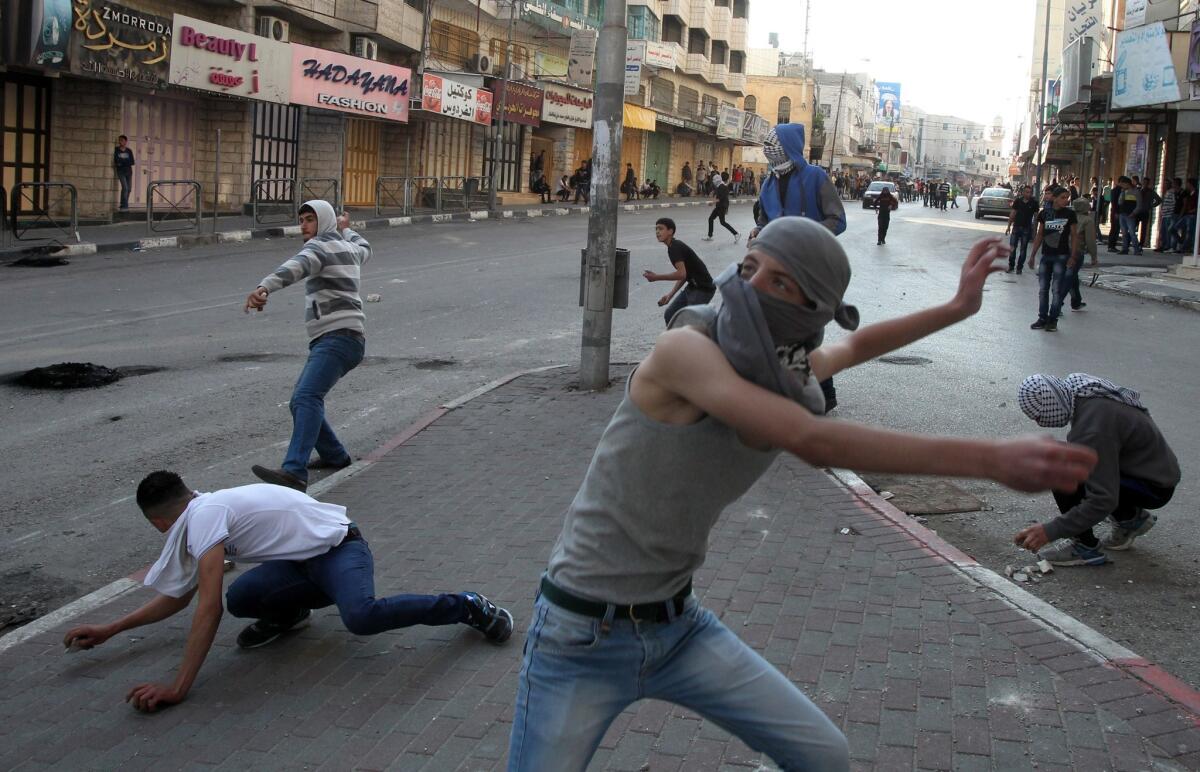Israeli lawmakers advance measure to restrict release of prisoners

An Israeli legislative committee gave initial approval Sunday to legislation that would curb the release of convicted murderers, a policy that if enacted might prevent future political deals calling for prisoner swaps with the Palestinians.
The panel that approves or nixes proposed bills gave its OK to the proposal, which still would have to be approved by the full Knesset in order to become law.
The legislation calls for judges sentencing convicted murderers to life terms to include a stipulation that would bar the president from pardoning them and shortening their sentence.
The bill is designed to block future releases of Palestinian murder convicts from Israeli custody, an action that is often a key element in negotiations with Palestinian leaders.
Israel agreed last summer to release long-serving Palestinian murder convicts to jump-start peace talks, choosing it over other such options as freezing housing settlement construction or recognizing the 1967 border as a base line for discussions.
However, the release of Palestinian prisoners convicted of murder has proved a political challenge to Prime Minister Benjamin Netanyahu’s right-wing coalition. Israel released three groups of prisoners but canceled the last round.
Israel has “turned a new leaf in the war against terror and its moral obligation to bereaved families,” Economy Minister Naftali Bennet said in a Facebook post shortly after the committee vote. “Murderers should die in prison, not celebrate at home,” added Bennet, who heads the hawkish Jewish Home party.
Opposition lawmaker Zehava Galon expressed sympathy for families of terror victims pained by the killers’ release. At the same time, she told media, “the government must be allowed a margin of maneuver to release prisoners” as part of a political push for reconciliation and peace.
In the past, Israel has released large numbers of Palestinian and other prisoners including convicted murderers serving life sentences in exchange for living captives or the remains of slain Israeli soldiers held by militant groups Hamas and Hezbollah.
It was not immediately clear exactly how the bill would apply. Under current law, the president may pardon prisoners tried in Israel’s civilian courts, while Palestinians tried in Israel’s military courts in the West Bank must be pardoned by army authorities.
It could also apply to other killers convicted of especially heinous murders, such as in cases involving children.
Pardoning prisoners is one of only a handful of practical powers held by the president under the Israeli system, and the issue taps into another debate preoccupying the political agenda.
President Shimon Peres will be completing his term in July. While the campaign to fill the formidable shoes of Israel’s most iconic public figure is underway both politically and legally, Netanyahu is said to be seeking to delay the election and possibly abolish the position altogether.
Various questions over the presidency have been raised before, although not in mid-race. Some would like to change the president’s authority to tap a politician to form a new government after elections.
According to current Israeli law, 120 lawmakers choose the president, potentially politicizing the choice of the national figurehead. Some say the citizens should elect the president, while others say the post is a wasteful political anachronism.
For many, Peres redeemed the institution disgraced by his predecessor Moshe Katzav, now serving a jail sentence for rape.
Netanyahu, who is out of the country for an official visit to Japan, has not publicly commented on reports he wants to abolish the presidency.
Netanyahu’s interior minister, Gideon Saar objects to the idea. “In Israel’s heterogeneous and divided society, the president is a unifying figure”, he told Israel Radio on Sunday. He also criticized the timing of the debate as undemocratic.
Sobelman is a special correspondent.
More to Read
Sign up for Essential California
The most important California stories and recommendations in your inbox every morning.
You may occasionally receive promotional content from the Los Angeles Times.










